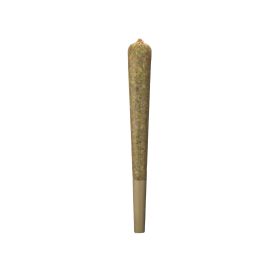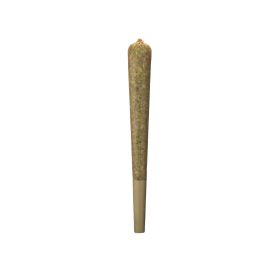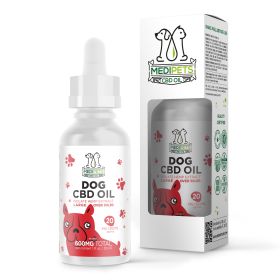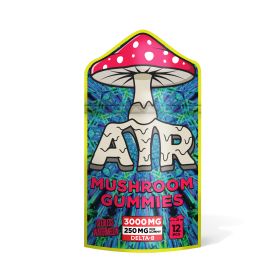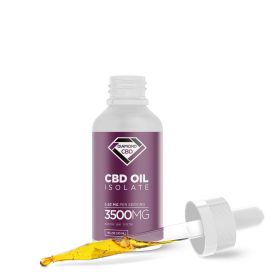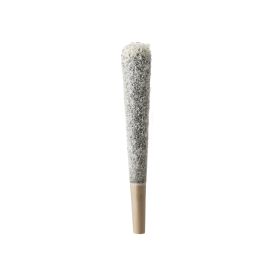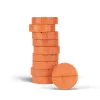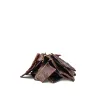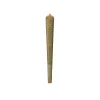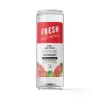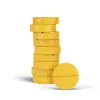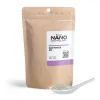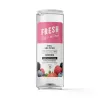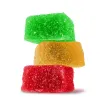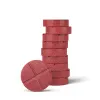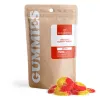It has been well known that cannabis consumers prefer products with a high level of THC since they are considered one of the primary factors that make a particular product more desirable. Despite this increased demand for more potent THC, the high concentration product industry has become oversaturated, resulting in many consumers preferring a product with lower levels of THC and higher levels of cannabidiol (CBD), a non-intoxicating compound. It has set up an interesting dichotomy in the cannabis industry, CBD vs. THC.
CBD vs. THC: What’s the Difference?
There are many differences between tetrahydrocannabinol (THC) and cannabidiol (CBD), two substances extracted from the cannabis plant and classified as cannabinoids. However, they differ in many ways that can affect your next dispensary purchase.
What Is CBD?
What is CBD, and why is it so popular? CBD has quickly spread across the United States and the globe as the ultimate user-friendly wellness product, allowing people worldwide to take control of their daily routines without interference from local governments. Moreover, CBD or cannabidiol has grown in popularity for one simple reason — it works! People looking for all-natural alternatives wanted a way to experience the benefits of medical marijuana without having to pack up and move to another state.
And with CBD, they found it, whether it be CBD oil, CBD edibles, CBD creams, or any other myriad products made with hemp-derived cannabidiol.
The discovery in the mid-1990s of the endocannabinoid system and the effects of phytocannabinoids on that system had a lasting impact on how people see and think about CBD. From that moment on, the benefits of these plants were no longer restricted only to people living in states that had passed laws. Now, because of this discovery and the growth of CBD-rich hemp, anyone can experience the benefits of CBD.
What changed the game was the difference at a molecular level. All CBD is the same, meaning that CBD derived from hemp is no different than CBD derived from marijuana. But, where the two vary is in their THC content. CBD from hemp contains no more than 0.3 percent THC —by law. Marijuana-derived CBD can have as much as 30 percent THC by volume. Simply put, hemp-derived CBD cannot cause a “buzz” or a high, unlike marijuana.
What Is THC?
What is THC, and what makes it one of the most sought-after compounds in the history of the world? Simply put, THC is the primary psychoactive ingredient found in cannabis. It can be used in any number of different ways including, but not limited to:
- smoking
- oils
- edibles
- tinctures
- capsules
THC is chemically similar to CBD but causes a high because of a few slight differences, most notably due to how its atoms are arranged. It shares identical chemical properties with the body's endocannabinoids and interacts with cannabinoid receptors. How does it work? Your brain releases neurotransmitters that relay messages between cells. These affect pain, immune function, stress, and sleep.
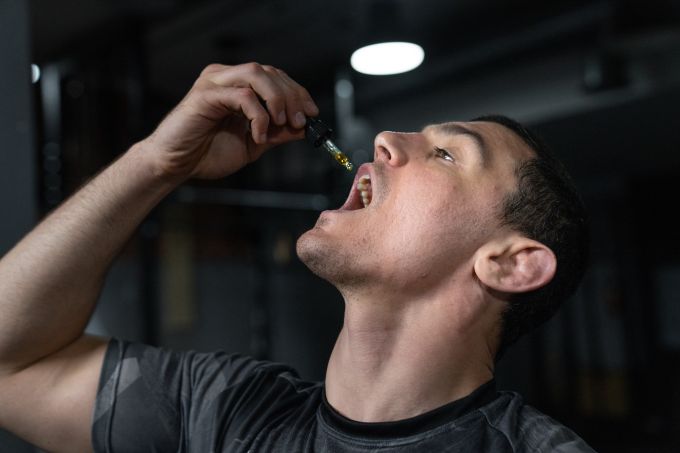
CBD vs. THC: A Comparison
Understanding CBD vs. THC better requires knowing the different components within each cannabinoid, including the various parts that make up each compound. Once we understand these components, we can gain a deeper understanding of CBD vs. THC.
When it comes to THC, the prominent cannabinoid in the plant is delta-9-tetrahydrocannabinol, also known as delta 9. This cannabinoid occurs naturally and is responsible for the high people get from it. CBD, however, or cannabidiol as it is commonly known, has no such high or high-like effects.
Among the main differences between THC and CBD is where they originate. In most cases, CBD is derived from hemp rather than cannabis. Even though hemp and marijuana are technically different, both are considered cannabis plants. Although hemp and marijuana are technically other plants, it's all a bit confusing. Hemp plants do not get you high. Furthermore, it is essential to note that:
- Hemp has only 0.3% THC
- Marijuana has anywhere from 5-20% THC
It has been suggested that THC is a psychoactive or psychotropic substance, whereas CBD is not. Psychotropic substances can affect a person's thinking, mood, perception, consciousness, and more. They may confuse and alter their state. The World Health Organization goes into more detail about this topic.
Here’s a closer look at how the two compare:
|
CBD vs. THC |
CBD |
THC |
|---|---|---|
|
Plant |
Found mostly in hemp; is present in marijuana |
Found mostly in marijuana; 0.3% in hemp |
|
High |
None |
Strong high with euphoric sensation |
|
Wellness |
Relaxation, sleep, pain relief, anxiety relief |
Anti-nausea, sleep, other serious issues |
|
Legality |
Federally legal |
Federally banned; see state laws |
|
Side effects |
Minimal |
Paranoia, anxiety |
CBD vs. THC: Chemical Structure
As far as molecular structure is concerned, THC and CBD have the same atoms: 30 hydrogen atoms, 21 carbon atoms, and 2 oxygen atoms. These atoms are arranged differently, so they affect the human body differently. Due to their similarity to our endocannabinoids, CBD and THC can interact freely with the endocannabinoid receptors throughout our bodies, also called the endocannabinoids.
For information to communicate between the cells in the brain, neurotransmitters - which are responsible for relaying information between them - are released due to this interaction.
CBD vs. THC: Will I Get High?
As most people know, THC use results in a psychoactive high, sometimes one that is quite euphoric. But when using THC, the effects can range from amazing to not-so-great. THC can have the following effects when used recreationally:
- Happiness
- Euphoria
- Relaxation
- Calm
- Altered Senses
- Altered perception of time
- Changes in mood
- Memory impairment
- Hallucinations
- Psychosis
It should be noted that psychosis is rare, and it is debated within the scientific community whether or not this is an after-effect of cannabis.
There are many reasons that people use CBD. First, people use it as an alternative to THC. For example, THC is still widely considered to be an illegal substance that has the potential to lead to specific cognitive side-effects in the long term. This includes a reduced ability to plan and organize, altered decision-making, impaired thinking and reasoning, and possibly reduced control over impulses.
It has been proven that CBD can counterbalance THC’s psychoactive effects. Unlike THC, CBD lacks these harmful cognitive effects. This means that when used in combination, CBD helps to mellow out the high of THC. Considering the ever-increasing popularity of medicinal cannabis, cultivators are currently creating unique strains with a higher CBD to THC ratio to minimize the intoxicating side effects.
More importantly, however, people use CBD for its comprehensive benefits. It could be said, without irony, that CBD is changing the world.
Users across the globe have hailed Cannabidiol as a new and novel cannabinoid for its various properties. Moreover, it is the most studied cannabinoid to date, proving that it has almost unlimited potential. So why do people use CBD? Well, let’s count the ways:
- It’s the perfect addition to any wellness regimen
- CBD combines well with food and drink
- CBD cream is excellent for those who like to workout hard
- CBD Gummies and capsules are ideal for dosing and “on-the-go” use
- CBD drinks are delicious
- People love to “de-stress” with CBD bath and body products
CBD vs. THC: Legality
As a result of the 2018 Farm Bill, CBD is legal on a federal level and in almost every state, although there are still a few that have restrictions on it. Even though the Farm Bill has legalized the production of cannabis parts with a THC concentration of 0.3% or less, states still have the final say on this matter, even though the Farm Bill allows the production of cannabis products.
There are a lot of states that do not restrict CBD at all. Some regulate CBD according to whether it is derived from hemp or marijuana, while others do not regulate CBD at all.
There are a lot of different laws regulating the use of CBD in various states. Before purchasing or using any CBD product, it's essential to check your state's rules to avoid conflict. You can find a lot of helpful information on the State Medical Cannabis Laws page of the National Conference of State Legislatures.
The legalization of cannabis is gaining traction, and as a result, the law is constantly changing. Some states have different laws regarding the maximum legal amount of THC or why THC can be used. State laws regarding prohibition are continually being altered, so everyone needs to stay in touch with the latest developments.
The National Conference of State Legislatures (NCSL) and the National Organization for the Reform of Marijuana Laws (NORML) may provide helpful information on the State Medical Cannabis Laws page. Likewise, the National Organization for the Reform of Marijuana Laws (NORML) may have details on state marijuana laws on its website.
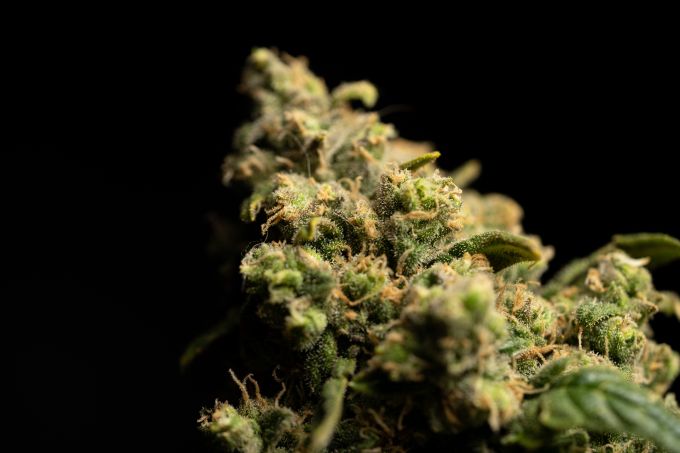
CBD vs. THC: Will I Fail a Drug Test?
Several CBD products contain THC, especially full spectrum CBD products. If these products are used regularly, there is a good chance that a positive drug test result may result in the use of these products. However, since drug tests are designed to detect THC and its breakdown products, CBD products are unlikely to cause a positive result on a drug test. Because CBD products are not regulated, it is impossible to know precisely what is in them or how much THC they contain since they are unregulated.
It is recommended to keep your consumption of CBD or THC to a minimum, regardless of whether it is legal in your state. If you work in an environment where CBD or THC is prohibited, or if it is illegal in your condition, do your best to limit your consumption.
The THC compound in marijuana will cause you to fail a drug test. THC remains in your body for 72 hours after a single use and 30 days if you continue to use marijuana.
CBD vs. THC: Side-Effects
Although neither cannabinoid is considered dangerous, there is no risk for addiction, abuse, or overdose. However, THC has been documented to cause temporary side effects owing to its psychoactive properties, such as temporary dizziness, nausea, and vomiting, which have been known to worsen over time.
This is a time when it is critical to note that high THC use amongst adolescents could be linked to more long-term psychiatric effects. However, we say "could" as that is a topic still in much debate in the scientific community.
However, a good thing about CBD is that it has very few side effects. Most likely, the side effects are minimal because CBD is not associated with a psychotropic high, and there is no loss of faculties. Research has shown that CBD is well tolerated even when taken in large amounts. Any side effects are likely caused by drug interactions between CBD and other medications. There is a slight chance of liver damage due to CBD use, but it is rare.
Here is a closer look at the possible side effects of the two compounds:
|
THC Side Effects |
CBD Side Effects |
|---|---|
|
Dry mouth |
Dry mouth |
|
Red Eyes |
Sleepiness |
|
Increased heart rate |
Fatigue |
|
Coordination problems |
Dizziness |
|
Memory loss |
Diarrhea |
|
Slower reaction times |
Weight loss |
Quick Look: CBD vs. CBG
CBD and CBG, or cannabigerol, might seem similar on the surface, but these two are very different compounds when you take a closer look. Each one has its benefit to the human body. Here’s a quick look at how they compare:
- Unlike THC, both compounds don’t cause a high.
- We know they both interact with the CB1 and CB2 receptors, although we now have much more information about CBD.
- CBG is a parent compound of CBD, but CBD has less of a direct effect on the body than CBG
CBG is such a new cannabinoid, at least insomuch as to our understanding of it, that we’re still learning more about it daily. But both are fascinating and seem to benefit the human body significantly.
Quick Look: CBD vs. Delta 8
There’s perhaps no more significant difference in compounds than between CBD and Delta 8. However, no two cannabinoids work together better synergistically than these two. Hence, many products contain CBD and Delta 8 because they balance each other. Delta 8 causes an incredible psychotropic high. However, CBD will make it more subtle and manageable. Some other differences between the two include:
- Delta 8 causes a psychotropic high. CBD does not.
- Delta 8 and CBD are both hemp-derived.
- Both compounds are federally legal.
- Both compounds enhance the entourage effect.
- Delta 8 is a minor cannabinoid. CBD is not.
- Researchers are still learning more about both.
While Delta 8 is loved for its high, people use CBD for many reasons. CBD and Delta 8 have many benefits, which we are still learning about today.
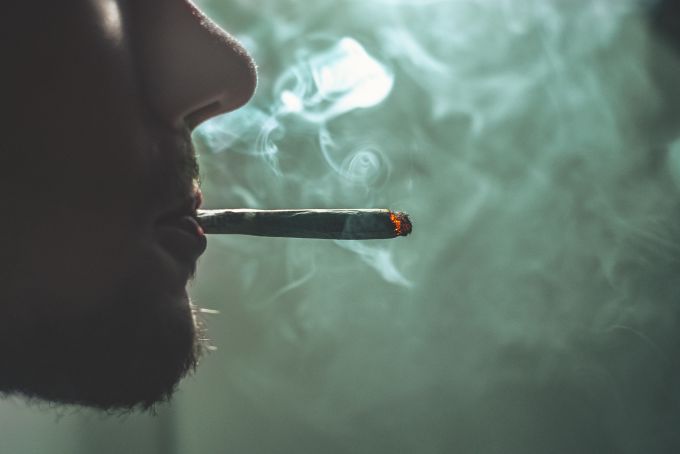
So How Much Should I Take?
The amount of CBD or THC you take depends significantly on your body size and whether or not you are looking for a high or low dosage. When it comes to THC, it is always recommended that you start slow and work your way up. The same can be said about CBD, although users have a little more leeway, considering there is no high.
The following chart can help you determine how much CBD or THC you should take daily. Again, remember, a lot depends on your size, weight, eating habits, and more.
|
Person Size |
Low Dosage |
Mild Dosage |
High Dosage |
|---|---|---|---|
|
86-150lbs |
12mg |
15mg |
18mg |
|
151-240lbs |
18mg |
22mg |
27mg |
|
240+ lbs |
22.5mg |
30mg |
45mg |
CBD vs. THC: Final Thoughts
CBD can counteract THC’s psychoactive effects. CBD is more effective than THC at neutralizing the adverse cognitive effects it causes. In general, plants that contain only a small amount of CBD and a high concentration of THC tend to produce a stronger "high" feeling – while plants with a higher concentration of CBD and a smaller amount of THC have a weaker and more relaxed high.
Accordingly, CBD is far more effective than THC for therapeutic purposes due to its lower risks and higher effectiveness. To minimize intoxicating side effects, cultivators are creating unique strains of cannabis with a higher CBD to THC ratio to mitigate the ever-increasing popularity of medicinal cannabis.
These two plant byproducts, tetrahydrocannabinol (THC) and cannabidiol (CBD) are highly safe and effective. Moreover, at least in the case of THC, it's just good old-fashioned fun!

